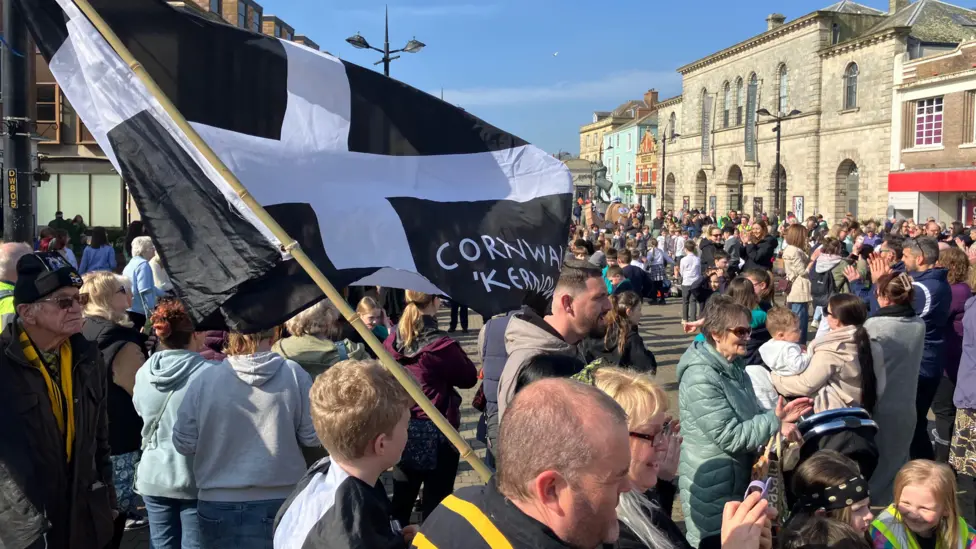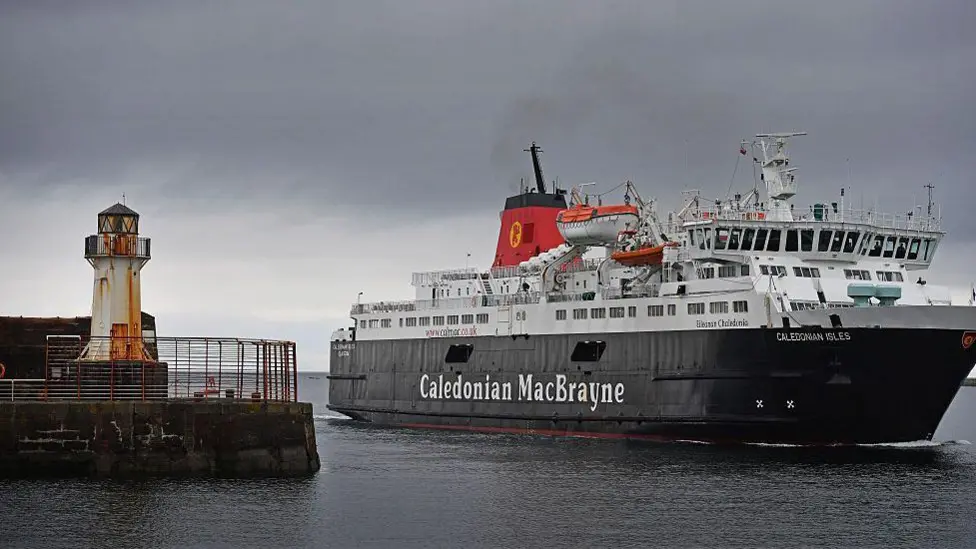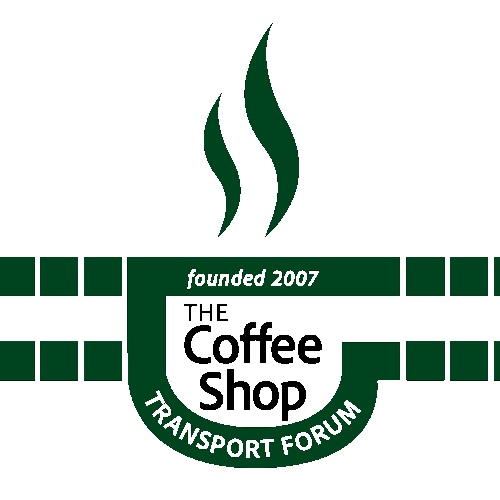Recent Public Posts - [guest]
It must be less easy to tell now: here, and at Bristol Temple Meads, in the past, would a bike locked and on the station platform pretty well guarantee a 1:1 correlation with a rail passenger?
Anecdotally, locking the bike at the station and on to a train was very much a thing for me until the cycle storage was moved from the platforms, the perceived (and actual) security of the replacement cycle parking around Bath Spa has put an end to that (and along with it some of the rail travel).
In London, and centuries back, cycling to the station as part of the daily commute was very much a thing for one of the household, but only a single instance of a security issue with that - they arrived back at the station one evening to find a set of bikes had been secured together with a cable - presumably a would be thief had the intention of returning later and stealing the whole lot. The episode resulted in a phone call to summon the appropriate resources to deal with the cable and all was well once again.
Bikes on trains, very much enabled with the more widespread availability of things that fold, though I'm suspecting that the IETs are a challenge even for those, thanks very much, Department for, er, Transport.
Mark
| Re: More than 12,000 back Cornwall as fifth nation In "The West - but NOT trains in the West" [373068/30521/31] Posted by Chris from Nailsea at 09:14, 5th March 2026 |      |
From the BBC:
The reason why we are proud to be Cornish

Truro holds a St Piran's Day Parade annually on 5 March with music, dancing and shop window competitions
St Piran's Day on March 5, widely adopted as Cornwall's national day, is a moment for people in the county, and all over the world, to celebrate their Cornishness.
One song that will be sung lustily is Trelawny , also known as The Song of the Western Men, with lyrics by the Victorian vicar Robert Stephen Hawker.
In a line borrowed from the anthem, BBC Cornwall has been asking people "the reason why" they are proud to describe themselves as Cornish.
(BBC article continues)

Truro holds a St Piran's Day Parade annually on 5 March with music, dancing and shop window competitions
St Piran's Day on March 5, widely adopted as Cornwall's national day, is a moment for people in the county, and all over the world, to celebrate their Cornishness.
One song that will be sung lustily is Trelawny , also known as The Song of the Western Men, with lyrics by the Victorian vicar Robert Stephen Hawker.
In a line borrowed from the anthem, BBC Cornwall has been asking people "the reason why" they are proud to describe themselves as Cornish.
(BBC article continues)
| Re: Caledonian MacBrayne ferries in Scotland In "Buses and other ways to travel" [373067/30034/5] Posted by CyclingSid at 08:54, 5th March 2026 |      |
A bit like the replacement Cowes chain ferry, buy something new and flashier then find you can't use it part of the time.
Or maybe recent publicity raising questions about BTP attitude to cycle theft at stations.
| Re: First Bus pulling out of Cornwall, 14.2.2026 In "Buses and other ways to travel" [373065/31133/5] Posted by Mark A at 08:33, 5th March 2026 |      |
It doesn't necessarily work well in the long term either if it tends towards monocultures. Nature's more resilient when the environment's peppered with microclimates and niche species. Something which applies to economies too?
Mark
| Why are train tickets so much more expensive in London than Berlin? In "Fare's Fair" [373064/31712/4] Posted by grahame at 06:20, 5th March 2026 Already liked by Mark A |      |
From the London Chronicle
A long article worth reading
...
A London commuter in Zones 1–2 spends roughly 5–7% of their average monthly net income on transport. A Berlin commuter spends approximately 1.1–2.2%.
The core structural gap is the UK’s absence of a simple, low-cost nationwide monthly pass comparable to Germany’s Deutschlandticket.
London fares are high partly because TfL relies more heavily on fare revenue than European counterparts who receive greater public subsidy.
The complexity of UK fare structures creates unpredictability and inflates costs for irregular travellers.
Transport costs compound London’s already high housing and living costs, creating a significant affordability gap relative to most European capitals.
...
A London commuter in Zones 1–2 spends roughly 5–7% of their average monthly net income on transport. A Berlin commuter spends approximately 1.1–2.2%.
The core structural gap is the UK’s absence of a simple, low-cost nationwide monthly pass comparable to Germany’s Deutschlandticket.
London fares are high partly because TfL relies more heavily on fare revenue than European counterparts who receive greater public subsidy.
The complexity of UK fare structures creates unpredictability and inflates costs for irregular travellers.
Transport costs compound London’s already high housing and living costs, creating a significant affordability gap relative to most European capitals.
...
It goes on to remind us that the approach to fares in London is a choice, and that other models such as the one in Berlin could be used if we wished.
| Station advertising - does it "improve efficiency and convenience"? In "The Wider Picture in the United Kingdom" [373063/31711/51] Posted by grahame at 05:44, 5th March 2026 Already liked by GBM |      |
From the North Wales Pioneer
Llandudno: Network Rail plans to modernise railway station
NETWORK Rail plans to modernise Llandudno railway station in an effort to "improve its efficiency and convenience", a move which could also support local community initiatives.
The company is behind plans for the installation of a freestanding 65-inch digital screen at the front of the station, which it said would "cause no detriment to the historic fabric of the station".
The screen will primarily be used for advertising, as well as for emergency information and customer information such as updates on trains and delays.
NETWORK Rail plans to modernise Llandudno railway station in an effort to "improve its efficiency and convenience", a move which could also support local community initiatives.
The company is behind plans for the installation of a freestanding 65-inch digital screen at the front of the station, which it said would "cause no detriment to the historic fabric of the station".
The screen will primarily be used for advertising, as well as for emergency information and customer information such as updates on trains and delays.
I find myself wondering if it's really about customer information improvement, or more about generating advertising revenue.
Llandudno is a mixture of ancient and modern at present - and I can appreciate the wish to replace the whiteboard with something that can be dynamically updated.





| Re: First Bus pulling out of Cornwall, 14.2.2026 In "Buses and other ways to travel" [373062/31133/5] Posted by grahame at 05:18, 5th March 2026 |      |
"The Last First Bus in Cornwall"
The whole commercial / competition setup is about survival of the fittest, and the failure to survive of the weakest, and the whole thing is modelled around weaker companies or parts of companies failing. Which does not in the short term fit well with social need - it leads to a scramble to get alternatives in place - sometimes perhaps better, sometimes not, but very much a shock change brought upon at a time and in a way that's triggered by the failing company and not in a planned sensible way. [Personal view ...]
| Re: Travel to the USA - risks of being detained, even as a tourist In "The Wider Picture Overseas" [373061/31660/52] Posted by grahame at 05:12, 5th March 2026 |      |
"Would your travel to the USA - now or in the future?
Yes - of course - 4 (13.8%)
Yes - though not at present - 1 (3.4%)
Yes - but after careful thought - 0 (0%)
Maybe at some time in the future - 5 (17.2%)
Not in the forseeable future - 11 (37.9%)
No - 4 (13.8%)
Haven't thought about it - 4 (13.8%)
Yes - of course - 4 (13.8%)
Yes - though not at present - 1 (3.4%)
Yes - but after careful thought - 0 (0%)
Maybe at some time in the future - 5 (17.2%)
Not in the forseeable future - 11 (37.9%)
No - 4 (13.8%)
Haven't thought about it - 4 (13.8%)
My wife Lisa is a dual citizen - originally from the USA, but now more British than American. And some of my family too emigrated from the UK to the USA some 60 years ago and are now more American than British. So we are an international family, and this question is about far more than a vacation - it's also about family events. Never the less, in the current climate we do not intend to visit the USA, even for those family events.
We are somewhat "with" family - Lisa's and mine - online and the distance does not feel as great; for sure, we can't pop into the yacht club at Los Alamitos to catch up with my cousins, nor into Roanoke, Long Beach or Naples to catch up with Lisa's siblings, son and family but yet we remain in touch. Not *just* the political situation and what's going on in the headlined parts of the huge country, but also no desire to fly and as we get older the health issues so far from home, under such tension, and we have an alternative online too. We welcome family here to the UK and to Europe; I've posted pictures of my cousin and her husband at Dundas and on the Two Tunnels walk, and in a couple of months I'll be meeting up with my other cousin and her husband in the Low Countries.
The world travel situation has changed even since I posted this poll though - so I never say "never". The changes, this week, are rather in the opposite direction and I am rethinking my late spring / early summer plans to go as far as I can by train across Turkey. Last year, the heatwave put me off, and I went to the other extreme of Narvik, and I've already been to Faro and Westport at the other extremes by train - Kars, Samsun and Van may need to wait to a future year.
| Re: First Bus pulling out of Cornwall, 14.2.2026 In "Buses and other ways to travel" [373060/31133/5] Posted by JayMac at 21:49, 4th March 2026 |      |
"The Last First Bus in Cornwall"
A video from a channel I subscribe to telling the story of buses in Cornwall from deregulation in the mid 1980s to the last days of FirstGroup's presence on the peninsula.
https://youtu.be/wLdlJZ73nk0
| Re: Caledonian MacBrayne ferries in Scotland In "Buses and other ways to travel" [373059/30034/5] Posted by Oxonhutch at 21:45, 4th March 2026 Already liked by Chris from Nailsea, GBM, Mark A |      |
| Re: Storing petrol In "The Wider Picture in the United Kingdom" [373058/22213/51] Posted by broadgage at 20:59, 4th March 2026 |      |
With a new war well underway in the ME, it would be well to review and perhaps to increase stocks of oil derived fuels.
Not just petrol, but also diesel, heating oil, paraffin, and LPG.
Shortages are possible, esp. if the situation escalates.
Not just petrol, but also diesel, heating oil, paraffin, and LPG.
Shortages are possible, esp. if the situation escalates.
Well the situation HAS now escalated. My personal view is that the present war in unlikely to have much direct influence on oil prices. In the past, many Arab nations co-operated to restrict oil supplies, this appears unlikely this time around.
The first response of Iran has been to bomb several neighbours, the first response of whom might otherwise have been to cooperate in imposing a united embargo on the West.
Still well to be prudent WRT stocks oil derived fuels.
| Re: Retiring on-train trolleys In "Across the West" [373057/31709/26] Posted by TaplowGreen at 20:43, 4th March 2026 Already liked by JayMac, broadgage, IndustryInsider |      |
What happens to GWR refreshment trollies when they retire? How would I set about getting hold of one (or two - one for spares) - don't see them at Railwayana sales ...
I think Broadgage is hoping to get hold of one.....he can offer the cats a packet of seagull scratchings & other delicacies

| Re: Retiring on-train trolleys In "Across the West" [373056/31709/26] Posted by broadgage at 19:49, 4th March 2026 |      |
" Restaurants are replaced by buffets, buffets replaced by a trolleys, and trolleys are replaced by nothing"
This is called progress.
| Re: Rail replacement Germany/ Czechia In "The Wider Picture Overseas" [373055/31707/52] Posted by grahame at 19:34, 4th March 2026 |      |
I suspect that the line is single due to engineering at the moment, the number of trains through cut right down, and many trains replaced by buses. I'm sure it's more your worrying than any actual problem; it will be very much like UK rail replacement, though finding the bus, and understanding what's happening, can be harder in a different language.
If it were me, that day, I would either take the route I've already suggested - or I would go via Rumburk - a pleasant little town. I might also see if I could find member UstiImmigrunt who lives along the way. So - Berlin - Dresden - Bad Schandau - Rumburk - Decin - Prague; the diversion off the normal way, by local trains , is Bad Schandau - Rumburk - Decin, most of which I have done - and enjoyed.
Can't give you total re-assurance, but you have two rail-only options from me now, both which are fun days.
| Re: Retiring on-train trolleys In "Across the West" [373054/31709/26] Posted by TonyN at 19:24, 4th March 2026 Already liked by grahame |      |
Try Cross Country they have just removed trolleys from the 170 services.
From Birmingham Live
Data shows the number of cycle parking counts at bus and rail stations fell from 785 during Quarter Three (October, November, December) of 2024/25 to 629 in the same period in 2025/26.
Would that be because fewer people are cycling to the station, or because more are now taking their cycles with them on the train?
| Re: Rail replacement Germany/ Czechia In "The Wider Picture Overseas" [373052/31707/52] Posted by LiskeardRich at 18:54, 4th March 2026 |      |
Thank you both. Neither of you have given me confidence!
There appears to be a couple of journeys that don’t involve the bus. I have screenshot a couple of these itineraries, would either of you be able to advise further.
It’s my first long distance Europe trip and I’m starting to get a little nervous. Thanks
| Re: Retiring on-train trolleys In "Across the West" [373051/31709/26] Posted by bobm at 18:10, 4th March 2026 Already liked by Mark A |      |
The ones on IETs say they are owned by Hitachi judging by an ID plate on them. Might be worth approaching them.
| Retiring on-train trolleys In "Across the West" [373050/31709/26] Posted by grahame at 17:26, 4th March 2026 |      |
What happens to GWR refreshment trollies when they retire? How would I set about getting hold of one (or two - one for spares) - don't see them at Railwayana sales ...
| Re: Why has the world's first hydrogen double-decker fleet failed? In "Buses and other ways to travel" [373049/31681/5] Posted by Fourbee at 12:15, 4th March 2026 Already liked by PrestburyRoad |      |
...so, stoiciometrically speaking, carbon won't have had much of a rôle. In reality it will have been much more messy than this as air is nearly 80% nitrogen; a lot of those hydrogen molecules will have given up hunting for oxygen to bond to and the reaction will have formed all manner of by-products, with NOx being among them.
One of the best chemistry experiments I saw at school was the hydrolysis of water where the products were captured in a cone of filter paper with a bit of washing up liquid added. As the Oxygen and Hydrogen bubbled up in the cone, thinking they would be going their separate ways a lighted splint was applied (sellotaped to a metre rule from a distance). As they recombined (in near-perfect quantities to make water) there was of course a huge bang!| Re: Cardiff woman dodges flight luggage fee by posting her clothes In "Buses and other ways to travel" [373048/31706/5] Posted by Noggin at 12:12, 4th March 2026 |      |
I knew a US management consultant who did something similar in the 1990s when he was on road trips in order to travel light.
He'd only pack a few overnight things and spare underwear, FedEx-ing clean shirts to himself at the hotels he was staying in along the way.
Carbon Footprint? We didn't really think of that back then.
| Re: Caledonian MacBrayne ferries in Scotland In "Buses and other ways to travel" [373047/30034/5] Posted by Noggin at 12:08, 4th March 2026 |      |
It's like the 1970s all over again.
| Re: Caledonian MacBrayne ferries in Scotland In "Buses and other ways to travel" [373045/30034/5] Posted by Chris from Nailsea at 10:21, 4th March 2026 |      |
Another update, from the BBC:
Ardrossan harbour to be taken into public ownership

CMAL is set to finalise a deal to take Ardrossan Harbour into public ownership
Ardrossan harbour is to be nationalised with the Scottish government's ferries and ports agency expected to finalise the deal this month, the transport secretary has announced
Fiona Hyslop said negotiations between Caledonian Maritime Assets Ltd (CMAL) and owner Peel Ports have now concluded.
The government has been forced to buy the harbour because new CalMac ferries ordered by CMAL for the Arran route are too big to berth safely at the existing facilities and it needs extensive redevelopment. Hyslop did not confirm how much the sale would cost but said negotiations had been "complex" but would bring "wider benefits" to ferry services in the long term.
CMAL is entirely owned by the Scottish government, and Hyslop revealed it had been necessary to make a "shareholder directive" to the CMAL board to conclude the deal. Hyslop said the port would remain the main port for ferry services from the mainland to Arran.
Speaking in Holyrood, Hyslop said: "This purchase will secure the port in public ownership to allow us to focus on the redevelopment of the facility as the primary mainland port for Arran. There is work to be done to move forward to tender for the port redevelopment, but CMAL are already considering short term work to ensure resilient operations whilst the MV Caledonian Isles continues to operate from Ardrossan and we are committed to funding a two port service until the major work starts."
Ministers also announced Ferguson's shipyard in Port Glasgow is to be directly awarded contracts to build four new vessels.
(BBC article continues)

CMAL is set to finalise a deal to take Ardrossan Harbour into public ownership
Ardrossan harbour is to be nationalised with the Scottish government's ferries and ports agency expected to finalise the deal this month, the transport secretary has announced
Fiona Hyslop said negotiations between Caledonian Maritime Assets Ltd (CMAL) and owner Peel Ports have now concluded.
The government has been forced to buy the harbour because new CalMac ferries ordered by CMAL for the Arran route are too big to berth safely at the existing facilities and it needs extensive redevelopment. Hyslop did not confirm how much the sale would cost but said negotiations had been "complex" but would bring "wider benefits" to ferry services in the long term.
CMAL is entirely owned by the Scottish government, and Hyslop revealed it had been necessary to make a "shareholder directive" to the CMAL board to conclude the deal. Hyslop said the port would remain the main port for ferry services from the mainland to Arran.
Speaking in Holyrood, Hyslop said: "This purchase will secure the port in public ownership to allow us to focus on the redevelopment of the facility as the primary mainland port for Arran. There is work to be done to move forward to tender for the port redevelopment, but CMAL are already considering short term work to ensure resilient operations whilst the MV Caledonian Isles continues to operate from Ardrossan and we are committed to funding a two port service until the major work starts."
Ministers also announced Ferguson's shipyard in Port Glasgow is to be directly awarded contracts to build four new vessels.
(BBC article continues)
They could have done some good publicity if they had go ahead with creating a few more battery powered class 230s ateast for the thames valley branches and possibly say Portishead to Henbury with fast charging technology would havw freed up a few 165/166's
2030 we are going to run into issues not with the class 150s I think its going to be the 158s or.tuebos that are going to start really having problems with their bodyshells. Que the DFT panicking and spending a fortune or ordering cheap class 197s from CAF
[...[
Rather disappointing that replacement trains appear to have been pushed into the long grass
Rather disappointing that replacement trains appear to have been pushed into the long grass
Did they forget to fit buffers at the end of the siding these hypothetical trains were shunted into?
| Re: Class 175s to Great Western Railway (GWR) In "Across the West" [373042/28982/26] Posted by Pb_devon at 08:25, 4th March 2026 Already liked by rogerw |      |
Long article in the latest Rail magazine 1056 of an interview with GWR Programme Director Barry Milsom about the 175 delays.
In summary, outside storage for years has caused damage requiring repair, plus other issues.
| Re: Caledonian MacBrayne ferries in Scotland In "Buses and other ways to travel" [373041/30034/5] Posted by grahame at 08:05, 4th March 2026 |      |
Isn't that the same yard which had the massive overruns/overspends on the last ferry contracts given to them by the Scottish Assembly?
Yes.
But - it's the only yard of the sort left, and it's now owned by the nation, and it has far more first hand experience of handling difficult contracts through political minefields.
| Re: Caledonian MacBrayne ferries in Scotland In "Buses and other ways to travel" [373040/30034/5] Posted by TaplowGreen at 07:58, 4th March 2026 |      |
Isn't that the same yard which had the massive overruns/overspends on the last ferry contracts given to them by the Scottish Assembly?










